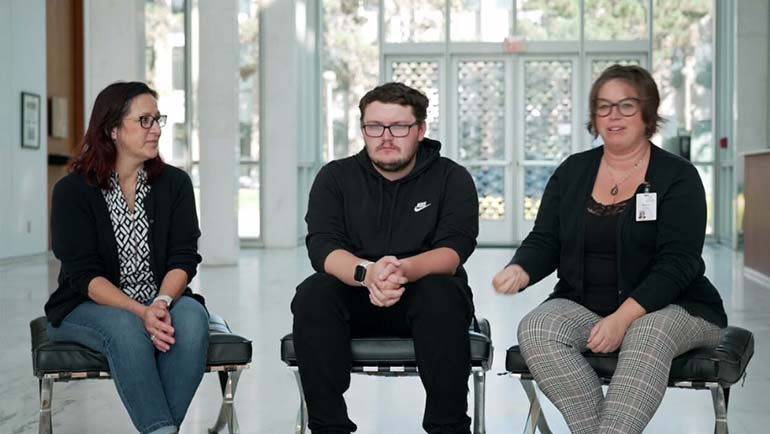
DETROIT — Michigan Developmental Disabilities Institute (MI-DDI), Michigan Department of Health & Human Services (MDHHS), and Wayne State University collaborated to produce a short feature on independent facilitation for the person-centered planning process. In the video, independent facilitators Trisha Fenby, Allison Hammond and Michelle Driscoll, along with case manager Renee Busby, illustrate the impact independent facilitation makes on those receiving services.
Independent facilitation is a part of the person-centered planning process, which involves creating a plan and providing support to individuals by helping them get involved in their community while respecting their wishes, decisions and skills. Independent facilitators respond directly to the individual’s dreams, desires and personal goals.
"Independent facilitation offers an opportunity to diversify the ideas during a person-centered plan,” Fenby said. “Often, we think that a person-centered plan and an individual plan of service are the same, and they’re not … a person-centered plan is more about celebration and ideating and coming up with some of the next steps — the goals and dreams that an individual has.”
During the person-centered planning process, independent facilitators get to know the individual and link them with local supports. They are independent and encourage the commitment of family members, friends and colleagues participating in the process, organizing information and coordinating with a supports coordinator or case manager to ensure the individual plan of services meets the needs of the individual.
“It gives me a lot of benefits,” said Tim Shute, who has used independent facilitation. “It helps me learn stuff in the community, socialize with people and learn new things.”
Those who receive behavioral services are free to select an independent facilitator or manage their own person-centered planning process. An independent facilitator can be anyone that the individual trusts, such as a family member or a trained professional. MI-DDI offers resources, training and support to prepare individuals to serve as independent facilitators.
“At the Michigan Developmental Disabilities Institute, we want to increase awareness of the opportunity to use an independent facilitator,” said Senior Associate Director Angela Martin. “We’re helping facilitators do the best they can by preparing them and helping them connect to people that want that support.”
The feature, which was produced by Wayne State University, was made possible with funding from MDHHS provided to MI-DDI. The full feature is available to watch below. To learn more about becoming an independent facilitator or find one for your person-centered plan, please visit ddi.wayne.edu/if.
